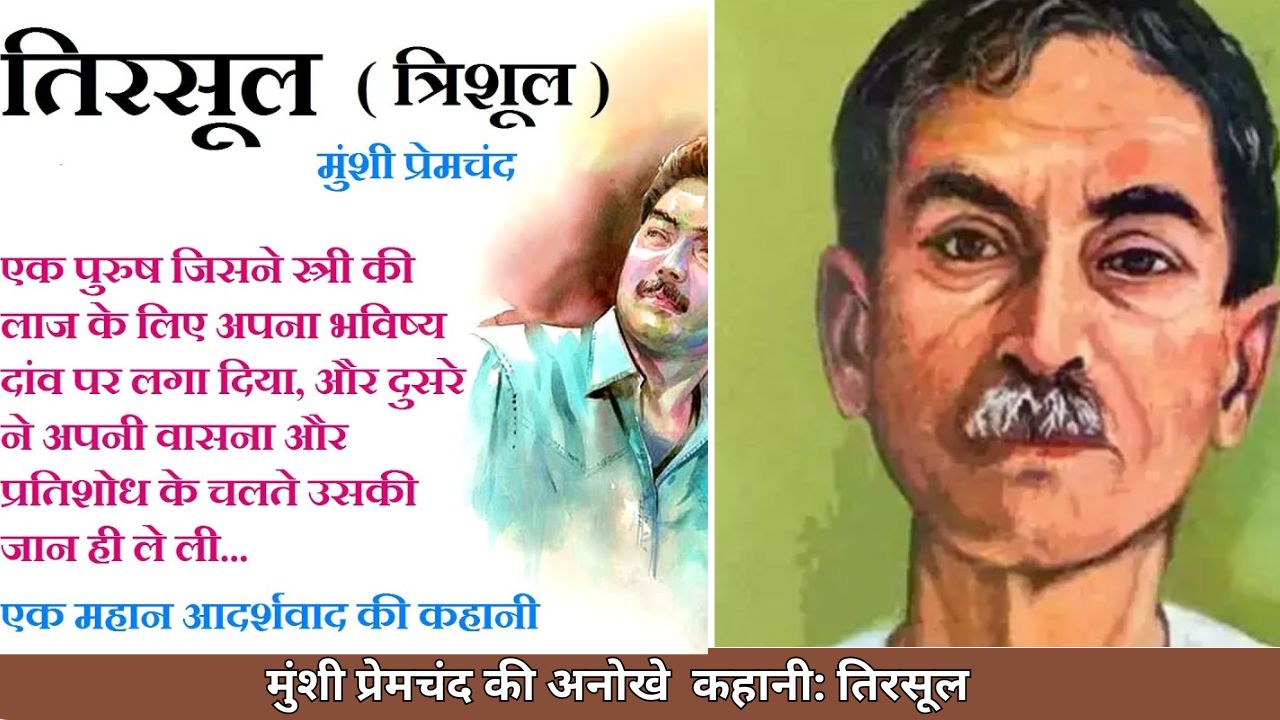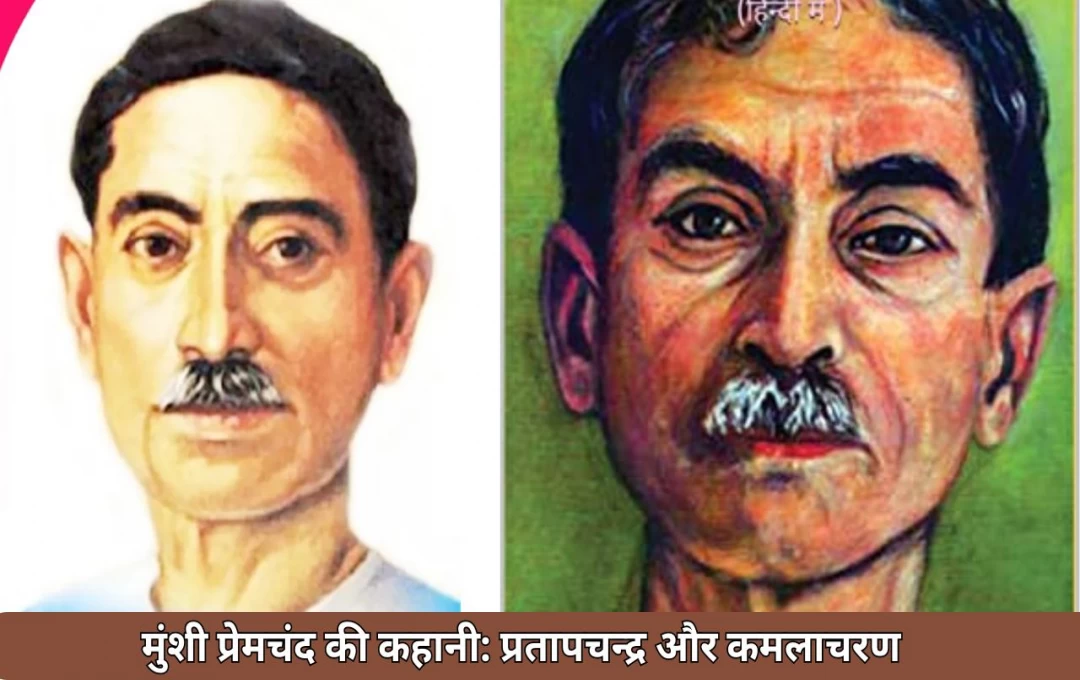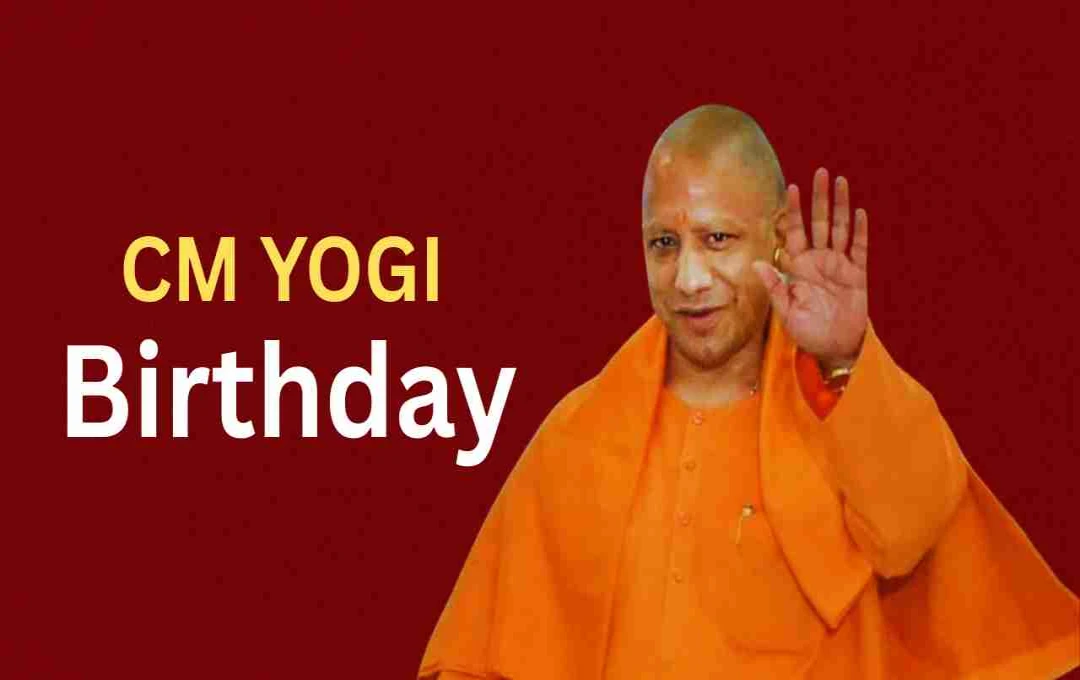Friends, our nation has been a cradle of great men and women, brimming with wisdom, from ancient sages and poets to literary giants and musicians. The countless works created by these individuals are invaluable treasures. Today's youth, in this digital age, seem to be lost somewhere, drifting further and further away from our rich heritage and priceless treasures. subkuz.com consistently strives to bring you not only these invaluable treasures, but also entertaining stories, news, and information from across the globe. Presented before you is a poignant and inspiring story by the renowned writer, Munshi Premchand.
Pratapchand and Kamalacharan
Pratapchand had spent three years studying at Prayag College. During this time, he had earned a special reputation among his peers and professors. There wasn't a facet of college life where his talent wasn't evident. Professors were proud of him, and students looked to him as their leader. His dexterity in sports was admired as much as his intellect and insightful contributions in the lecture hall. A student association was formed within the college. It comprised not only ordinary members of the city's elite, and college professors and students, making Pratap the shining star of the society. Here, discussions were held on national and social issues.
Pratap's speeches were so eloquent and logical that even the professors were amazed by his insights and explorations. His oratory skills and sportsmanship both held immense power. When he stood on the platform, clad in simple attire, the audience's eyes would fix on him, and waves of curiosity and enthusiasm would ripple through the gathering. His eloquence, his expressive gestures and soft tones, and the grace of his movements, all seemed imbued with a divine inspiration. As long as he was on stage, a captivating aura surrounded the attendees. Each word resonated in their hearts, and spontaneous "Bravo!"s would erupt from the crowd. This was typically the concluding moment of his speeches, as many attendees came specifically to savor his insightful delivery. A natural magnetism emanated from his words and tone. Literature and history held a special place in his pursuits, and he often pondered the rise and fall of civilizations and the underlying causes and trends. His dedication and endeavors were met with applause from the audience; he saw this validation as the reward for his hard work.
Indeed, witnessing the dynamism of his enthusiasm, one could envision the prolific achievements that lay ahead. He hadn't given a moment's thought to the shape of his future. Sometimes he dreamt of becoming a professor, writing extensively. At other times, he entertained the possibility of a legal career. He also considered pursuing civil services if he were fortunate enough to receive a scholarship. His mind couldn't settle on a single path.
However, Pratapchand was not one of those students whose ambitions were confined to the realm of lectures and books. A portion of his diligence and competence was also dedicated to the welfare of the public. He possessed a generous and compassionate heart, and inherited from his father the ability to connect and work with ordinary people. His enthusiasm shone brightly in these endeavors. He was often seen wandering through the squalid alleys of Kittaganj and Katra, areas primarily inhabited by low-caste individuals. Pratap would sit on a broken cot for hours, engaging in conversations with those whom upper-caste Hindus avoided. This endeared him deeply to the residents of these neighborhoods. Selfishness and material pursuits held no appeal for Pratapchand. He would readily assist anyone in need, regardless of their background. Numerous nights were spent by his bedside, providing solace to the ailing and the destitute. He had also founded a community organization dedicated to serving the public, and in a short span of two years, its success had endeared it to the people of Prayagraj.
When Kamalacharan arrived in Prayagraj, Pratapchand welcomed him warmly. Time had subdued the bitterness in his heart. When he had traveled to Benares upon hearing of Virajan's illness, and the latter's condition had improved upon their meeting, Pratapchand had realized that Kamalacharan had not earned the place in his heart that he held for his other friends. This realization quelled his anger. He was also often troubled by the thought that he was the one who had harmed Suchila. His harsh words had led to her demise. Since she had begged for forgiveness in her dying moments, Pratap had vowed to atone for his transgression whenever possible. Kamalacharan’s respect and attentiveness in terms of education and reform provided him with an unprecedented opportunity to do so. He treated Kamalacharan as a younger brother, spending time to assist him, making learning an enjoyable experience.
However, despite Pratapchand's efforts, Kamalacharan remained anxious. There was no one in the hostel who understood his emotional state, with whom he could share his feelings. Despite his close relationship with Pratap, he remained hesitant to reveal his inner turmoil. When loneliness became unbearable, he often berated Virajan for causing his problems. He felt that she did not care for him. Was affection merely a product of words and writing? Even if he sacrificed his life, he did not think that his affection would extend beyond words and letters. Facing such indifference was hopeless. These thoughts grew so b that he eventually stopped writing to Virajan. She would pour her heart out in her letters, but he would not reply or his responses would be curt and hurtful. Every action and word of Virajan seemed to demonstrate a decline in affection. If he could forget those moments, he might find some comfort. Yet, the human mind often betrays our emotions.

Eventually, Kamalacharan devised a way to distract himself. From a young age, he had been drawn to beauty and the aesthetic arts. Beauty had become as indispensable to him as food for survival. There was a garden belonging to a merchant who lived in the boarding house and a gardener, whose name was Sarayu Devi. While she may not have been considered exceptionally beautiful, her allure for Kamal lay more in the pleasure she provided. Any woman exhibiting youthful beauty was enough to satisfy him. He began pursuing her attention. He would frequently stroll through the garden in the evening, while other students were out playing, often peeking into the gardener's quarters. They soon exchanged words. He would lavish gifts upon her, even exceeding their market value. The gardener and she seemed to favor Kamalacharan over other suitors. Ultimately, Sarayu Devi became ensnared in his affections, resulting in clandestine meetings.
One evening, as all the students were out for a walk, Kamalacharan was alone in the garden, occasionally glancing into the gardener's quarters. Suddenly, Sarayu Devi beckoned him inside. Tonight, she was wearing a silk sari, a gift from Kamalacharan. She had scented oil on her hair, brought by him from Benares, and a lovely necklace. In his eyes, she was exquisitely beautiful tonight, which is why he was drawn to her; no man would ignore such beauty. He watched her with amorous eyes, sitting on a cot. Sarayu Devi seemed as beautiful as a goddess to him. Though there was a subtle difference in their appearances, it was not significant. He felt her love to be genuine and passionate, as evidenced by her tears whenever they spoke about Benares, saying that she would never leave his side. What a contrast to Virajan's indifference and insensitivity!
Before Kamalacharan had a chance to take a breath, the gardener knocked on the door. His heart pounded; his face turned pale. He begged Sarayu Devi, "Where can I go?" Sarayu Devi was terrified, speechless. Just then, the gardener knocked again. Sarayu Devi, caught in this predicament, reluctantly opened the door. Kamalacharan stood in a corner, holding his breath.
Like a sacrificial lamb awaiting the slaughterer's knife, Kamalacharan's heart pounded in his chest. He was overwhelmed with despair and earnestly prayed to God, promising never to repeat such a deed. Then, the gardener's eyes fell upon him. Startled, the gardener approached, asking, "Who is this?"
The words were enough; Kamalacharan bolted out the gate, desperately trying to flee. The gardener, armed with a stick, yelled, "Stop! Stop!" This was the same Kamalacharan who showered the gardener with gifts, calling him "Your Majesty." Now, he was fleeing from the very same man, driven by guilt. Sin is a furnace that quickly consumes respect, courage, and fortitude.
Kamalacharan, running through trees and shrubs, escaped the garden. He found a passing carriage, and collapsing onto the seat, he fell unconscious. Although the gardener didn't pursue him beyond the gate, Kamalacharan remained vigilant and apprehensive of everyone he saw, as if the entire world had become his enemy. Fate dealt him another blow. At the station, overwhelmed by fear, he sought shelter in a carriage, but completely forgot about buying a ticket; he was unsure where he was headed. He craved to flee the town. After traveling some distance, he saw an English officer with a lantern, accompanied by a soldier. They were checking passengers' tickets. He mistook the officer for a police officer. Terrified, he trembled and panicked. While the officer examined other carriages, Kamalacharan remained seated, but the moment the door to his carriage opened, he leaped off the moving train. The soldiers and the train conductor saw his actions and assumed he was a notorious criminal; they were thrilled with the potential reward. A lamp flashed.
The train soon halted. The guard, soldiers, and ticket checker, along with a few other individuals, disembarked. They searched the area with their lanterns. Someone said, "He's gone, probably a thief." Another remarked, "They always have a bad conscience," but the guard continued his search. The hope of a pay raise kept him going. Eventually, he reached the spot where Kamalacharan had jumped. The soldier pointed towards the ditch, "Look, there's something white. I think it's a person." Others corroborated the sighting, believing a culprit was hiding. The guard drew his pistol, and the soldier raised his stick. Several women removed their shoes, prepared to defend themselves if attacked. Two men held up rocks. Who dared approach a suspected criminal? However, upon closer inspection, there was no criminal. A young man, handsome and physically fit, lay on the ground, his face down, with blood slowly trickling from his nose and ears.
Kamal was breathing his last. Virajan, meanwhile, had experienced a horrifying nightmare. Sarayu Devi had stolen Virajan's happiness.
And so concluded the inspiring tale by the great writer Munshi Premchand. This story offers many valuable lessons. The entire subkuz team is committed to providing our visitors with daily doses of inspiring tales. Continue reading such insightful and thought-provoking stories on subkuz.com.







